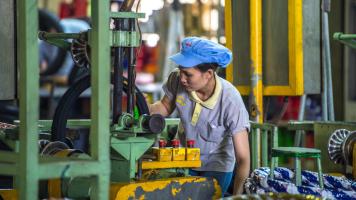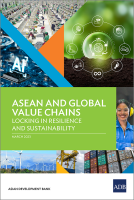To Decarbonize Global Value Chains, ASEAN Countries Must Address Climate Issues in Each Sector
Climate impacts among challenges threatening ASEAN's position in global value chains.
Southeast Asia needs to strengthen its position in global value chain to bolster resilience against new challenges including future pandemics, geopolitical instability, and climate change, according to a new report, ASEAN and Global Value Chains: Locking in Resilience and Sustainability, which was launched during the Asian Development Bank's (ADB) fourth Southeast Asia Development Symposium (SEADS).
ADB Southeast Asia Department Director General Ramesh Subramaniam, in a fireside chat with CNBC Indonesia News Anchor and Journalist Dina Gurning, talked about the importance of ASEAN's participation in global value chains (GVCs) and the role they played in the region's economic growth over the years. He said in order to decarbonize GVCs, ASEAN countries would need to look into every segment of each industry and address climate issues.
With the theme, "Imagining a Net-Zero ASEAN," SEADS 2023 explored measures governments, communities, and the private sector could take to progress toward carbon neutrality.


